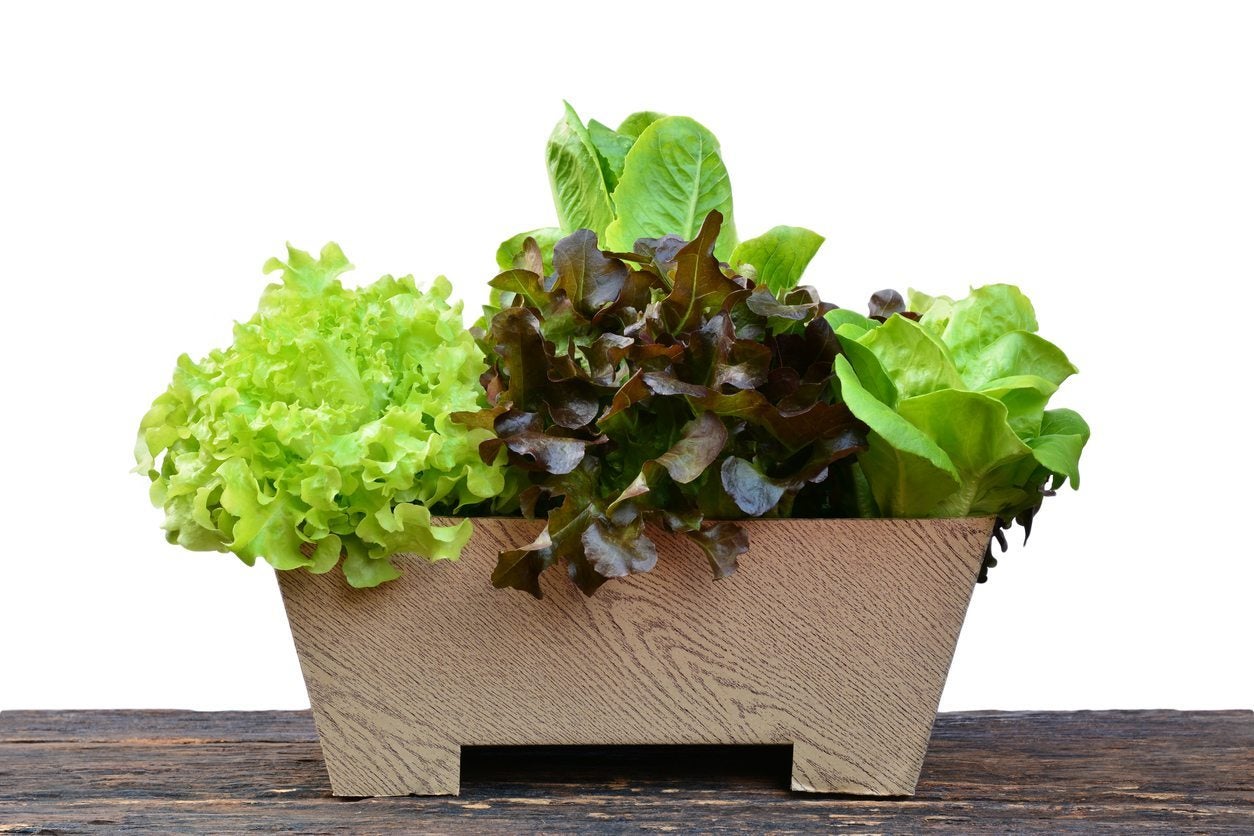
Sign up for the Gardening Know How newsletter today and receive a free copy of our e-book "How to Grow Delicious Tomatoes".
You are now subscribed
Your newsletter sign-up was successful
You will never have an excuse again not to have a fresh green salad if you grow a salad in a pot. It's super easy, fast, and economical. Plus, growing greens in containers allows you to select the types of greens you favor rather than settling for one of those supermarket mixes.
Container-grown salad greens are also less expensive than purchasing those boutique baby greens as well. A salad bowl garden is really a win/win. Read on to find out how to grow greens in a pot.
Benefits of a Salad Bowl Garden
While supermarket selections are expanding all the time, there are still usually only a handful of greens available at the grocer's.
There are so many greens to choose from and many of them are more colorful, flavorful and higher in nutrition than store-bought greens). Plus, it’s easy to grow your own microgreens at a fraction of the cost. Greens can also be harvested by just plucking the leaves instead of the whole plant. That means that you have a continual supply of fresh greens when growing greens in containers.
You should be able to enjoy three to four harvests from each plant, but you can also succession plant so that in another few weeks, you have another entirely new plant to harvest from.
Also, by growing them in pots, greens are less susceptible to being munched on by pests or afflicted with soil-borne diseases. Container-grown salad greens don’t require much space or even much effort. With a rapid return, most lettuces mature from seeding in about three weeks. This also makes it the perfect fun and educational project to work on with your less-than-patient kids.
How to Grow Greens in a Pot
Lettuce is one of the oldest veggies, developed from prickly lettuce, which as its name suggests was a less than desirable green. By weeding out the less desirable traits, such as the spines, more edible lettuce was created.
Sign up for the Gardening Know How newsletter today and receive a free copy of our e-book "How to Grow Delicious Tomatoes".
Today, there are hundreds of different cultivars of greens to choose from and, along with the lettuces, you may wish to grow other greens such as spinach, beet greens, kale, or Swiss chard.
You may also want to include some edible flowers or herbs to add pizzazz to your salads. Keep in mind that not every plant listed here has similar growing requirements. For instance, herbs are usually low-maintenance, drought-tolerant plants. They wouldn’t be included in with your delicate greens but could be container-grown alongside the salad bowl garden.
To grow salad in a pot, select a tray, pot, or window box that is at least 18 inches (46 cm.) wide and 6 to 12 inches (15-31 cm.) deep. Be sure that the container has adequate drainage holes in the bottom. Choose your greens. In addition to those previously mentioned, some of the many types include:
Likewise, you may choose to plant a “mesclun” mix, which usually includes arugula, lettuce, chervil, and endive. Fill the container with pre-moistened, good quality potting soil or one of your own makings. Sow the seeds densely with ½ inch (1 cm.) between seeds. Keep the pot moist during germination and thereafter.
Thin the plants when they are a few inches (8 cm.) tall using a pair of scissors. You can then toss the thinnings into a salad as microgreens. When the plants are 4 to 6 inches (10-15 cm.) tall, fertilize them with a soluble fertilizer at half strength. Plants can be harvested after a few weeks by cutting just the leaves you want.

Amy Grant has been gardening for 30 years and writing for 15. A professional chef and caterer, Amy's area of expertise is culinary gardening.
